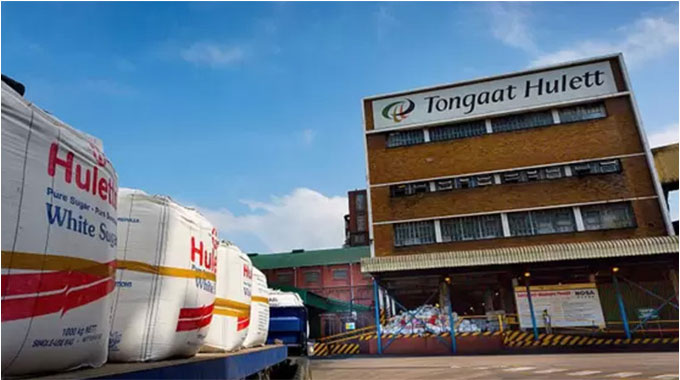Tongaat, sugar growers feud goes to arbitration tribunal
THE dispute between sugarcane farmers in the Lowveld and millers over a milling agreement has been referred to a tribunal for arbitration as the feuding parties seek to end the protracted dispute.
Farmers, mostly smallholder growers, are seeking a resolution of the matter through the arbitration after Tongaat Hulett allegedly reneged on a milling agreement to share revenue from by-products with growers.
According to industry sources, Tongaat, Zimbabwe’s sole sugar milling firm, and the farmers have an agreement, which allows growers to either collect molasses, a byproduct from cane milling or get paid for it.
Alternatively, millers can process the residue into ethanol and use revenue generated from ethanol sales to pay the farmers.
By not allowing farmers to “participate in the value addition”, the growers allege Tongaat was violating a standing agreement.
“There is an agreement, which is not being fulfilled by Tongaat and we are hoping that a panel of three arbitrators would be in a position to give us the outcome by the end of May,” said one source who declined to be named because he is not authorised to talk to the press.
From the sugarcane milling process, about 3,5 percent is realised as molasses, which is processed into ethanol by Fuel Ethanol Zimbabwe, a company jointly owned by Triangle Limited and State-owned National Oil Infrastructure Company.
Apart from molasses, the other major by product from the sugarcane milling process is bagasse, used in power generation. Currently, Hippo Valley Estates produces 44 megawatts (MW) from Hippo Valley Estates and 45 MW from Triangle Estates by products.
The farmers are also seeking reconfiguration of the sugar marketing agency, Zimbabwe Sugar Sales (ZSS) to broaden the participation of smallholder growers as well as a reduction in milling charges, currently at 23 percent of gross revenues.
No comment could be obtained from Tongaat by time of going to press.
The sugar industry is one of the largest formal employers in Zimbabwe with a total labour force of between 25 000 to 27 000 workers mainly in the country’s Lowveld.
Prior to the land reform, which started at the turn of the millennium, Tongaat, the owner of mills in Triangle and Hippo owned 75 percent of all the land under sugarcane.
Changes in land ownership saw a major transition as plantations under Tongaat declined to 56 percent of its initial holdings while out-growers took control of the remaining 44 percent.
This culminated into a prolonged antagonistic relationship between Tongaat and the farmers.
In 2019, farmers petitioned Parliament for the repeal of the Sugar Control Production Act, arguing that it has been overtaken by developments resulting from land reform.
In the petition signed by eight associations representing local farmers in the Lowveld, sugarcane growers sought reforms in the entire value chain from a regime of monopoly by Tongaat to that which takes into account changes in the industry resulting from land reform programme that increased participation of local farmers.
The farmers were unanimous that the Sugar Production Control Act of 1964 was outdated.
The farmers indicated that the Act is devoid of the following; the establishment and incorporation of the Zimbabwe Sugar Association, membership and composition of the association, powers of the ZSA Council and sugar industry agreements.
The associations noted with concern that Tongaat is the sole-dominant player in the entire sugar milling process in the sugar industry value chain in Zimbabwe.-The Herald











